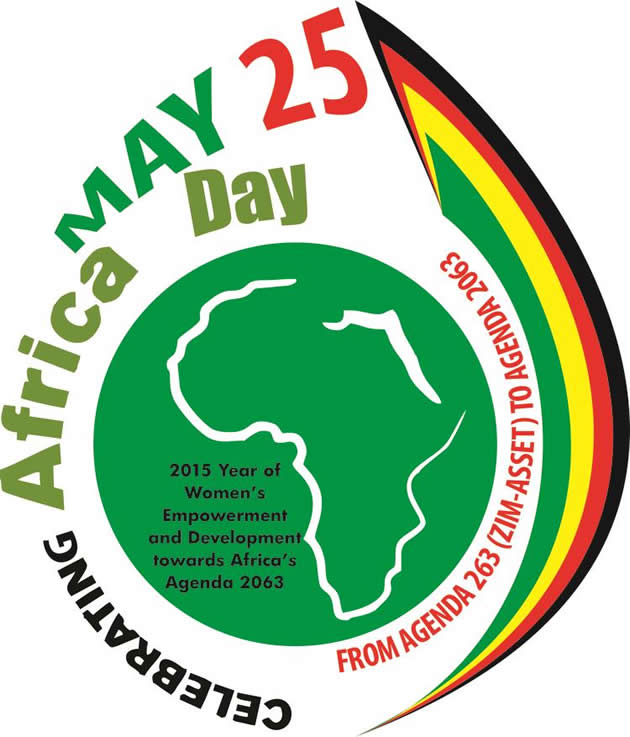Draft IP Policy must close gap between rhetoric, action

Ignatius Mabasa Shelling The Nuts
WHEN Zimbabweans discuss local inventors and creative people, we mostly talk about Daniel Chingoma and his ill-fated helicopter. While Chingoma got a lot of publicity, I don’t think his “invention” was not worth shouting about because it didn’t fly, and besides a helicopter is somebody’s idea that has been flying for decades now.
There are innovators in Zimbabwe whose inventions have made life for locals and people in other parts of the world easy.
William Gwata is one such person. He invented the sadza cooking machine — the Gwatamatic which is being used to cook the Zimbabwean staple dish in hospitals, restaurants and boarding schools.
The last time I spoke to Gwata, he was exploring ways of packaging and exporting microwavable sadza. Sadza on the go, now that is innovation!
There are a lot of other Zimbabweans who are not professors of robotics or informatics, but are doing wonders.
For example, in the arts sector we have creative geniuses like Tsitsi Dangarembga, Dominic Benhura, Virginia Chihota, Enock Chihombori, Tapfuma Gutsa, Masimba Hwati, Portia Zvavahera, musicians like Oliver Mtukudzi, Hope Masike, writers like Tendai Huchu, Petina Gapa, Novuyo Rosa Tshuma and many others.
All these people are raising the country’s profile, exporting Zimbabwean ideas, knowledge and skills to other parts of the world.
They are making a contribution to the country’s GDP and if only we created an enabling environment to fund, encourage, promote and protect their creative abilities, we could realise more from our people’s intellectual property.
We could have more of our young people channelling their energies to thinking and creating.
Intellectual property is a legal term that refers to creations of the mind.
According to Wikipedia, examples of intellectual property include music, literature, and other artistic works; discoveries and inventions; and words, phrases, symbols and designs.
According to WIPO, intellectual property is protected in law by, for example patents, copyright and trademarks, which enable people to earn recognition or financial benefit from what they invent or create.
By striking the right balance between the interests of innovators and the wider public interest, the IP system aims to foster an environment in which creativity and innovation can flourish.
The Draft National Intellectual Property Policy for Zimbabwe that was compiled and produced by the Secretariat of the Inter-Ministerial Committee on Intellectual Property is one of those documents that bring a smile to Zimbabweans working in the creative and research areas.
The draft policy document acknowledges that intellectual property is a major strategic asset for promoting innovation and technological development which in turn will enhance economic and social development if properly managed.
It also admits that the full implementation of the policy will help enhance the competitiveness of Zimbabwean products and services in global markets much to the benefit of the country and the citizenry as a whole.
Copyright is vital to the sustenance of the Zimbabwean economy.
The current copyright and creative industry environment has generally left the creators vulnerable and at the mercy of piracy.
Through the draft policy, government seeks to strengthen the copyright system by formally constituting the National Copyright Office and manning it appropriately, updating the copyright legislation, increasing strict supervision of collecting societies, and partnering with enforcement agencies to combat piracy.
The Government also promises to create an enabling environment that will facilitate the smooth functioning and entrepreneurship of the creative industries.
If we are acknowledging the economic development that comes with utilising IP, the draft policy must now be looking at making things happen.
The policy is very clear about the missed opportunities.
It recognises that enforcement of intellectual property rights is an integral aspect in the administration of the intellectual property system.
Countries that have made significant strides in utilising intellectual property for economic development have relatively focused on the enforcement of IP rights.
The world over, enforcement of IP rights has remained a challenge for many governments including Zimbabwe.
The absence of effective enforcement mechanisms has contributed immensely to the violation of intellectual property rights, be it by nationals or by foreigners, much to the detriment of the Zimbabwean economy. For example, it has been estimated that more than one billion dollars is being lost annually in the copyright industry as a result of piracy.
I am excited that the policy seeks to give direction and put in place deft strategies that will ensure that Zimbabwe respects intellectual property for its own benefit.
My hope is that such strategies must be implemented as soon as yesterday because they are a worthy investment and an amplified meaning of beneficiation.
Having worked with several universities in Zimbabwe that were conducting various research, I understand the policy’s thrust to finance university researches and encouraging research oriented learning.
A lot of the research our local universities undertake are claimed by foreign universities that would have funded the researches. So, it is important that the policy is acknowledging that universities are vital in creating a stock of knowledge on technology and innovation through their research efforts.
It is a fact that much of research is done by universities; however the current scenario has seen much fewer researches being conducted by universities due to various problems.
Some of the issues which the policy wants to be addressed are matchmaking university research with industry needs.
Actually, in the UK, universities are developing courses in consultation with industry such that the graduate is fit for the market and will have a business mindset even before he or she graduates.
The draft IP policy hits the nail by recognising that without a sound legal system, inventors, innovators and creators will be discouraged in coming up with commercially viable ideas as they will not benefit economically or get any returns.
It is the undertaking by the policy that the government will ensure that all facets of IP are secured by an efficient and effective protection system with lively enforcement structure.
By promoting and sponsoring a secure creation environment, the public and private sector will be encouraged to participate in the IP ecosystem.
And it is important as the policy states that in order to produce an effective IP system, certain skills will be required.
Zimbabwe has a thin base of research and development experts to generate IP relevant products.
The country does not have qualified Patent and Trademark Attorney’s, IP managers, Technology transfer and licensing experts, enforcement agents and judges.
These will be required and training of this personnel will be prioritized.
We know and have great ideas about what needs to be done to fix some of the problems that are bedevilling us as a nation. We have some very knowledgeable and experienced people, but I believe we need to close the gap between rhetoric and action.
To know is not enough just like having great ideas and good intentions doesn’t help. It is what the Shona proverb calls, “A dog’s journey that only takes place in the heart.”
The draft IP policy is a fine document to get us started, but what we need is action and walking the talk.
At 35 years, Zimbabwe should have developed, implemented and reaped bountifully from several policies, but I think we are slow and we over-consult.
We seem timid, ponderous and not fleet of foot. Indeed, it is true that if you don’t build your dream, someone will hire you to build theirs.
Zimbabwe has allowed younger and eager nations like Namibia to borrow human resources and brilliant ideas from us and implement them with great results.
Work on the draft National Intellectual Property Policy is one of the tangible results from the Inter-Ministerial committee on IP that was established in 2009.
While there are areas that are aspirational and some that still need a bit of work to be fully developed, we must applaud the efforts by the committee to have taken us up to the draft policy stage. We should not continue to wait when we are haemorrhaging economically and creatively as a nation.
The only way to make progress is to adopt the policy and identify key sections that can give us quick wins by being immediately actioned.
A piecemeal approach will help us learn valuable lessons than talking and re-drafting.
Change favours a prepared mind that is ready to confront mountains.
Government has the clout to create an IP conscious society for socio-economic development, and operationalising this draft policy is a good stating point.










Comments